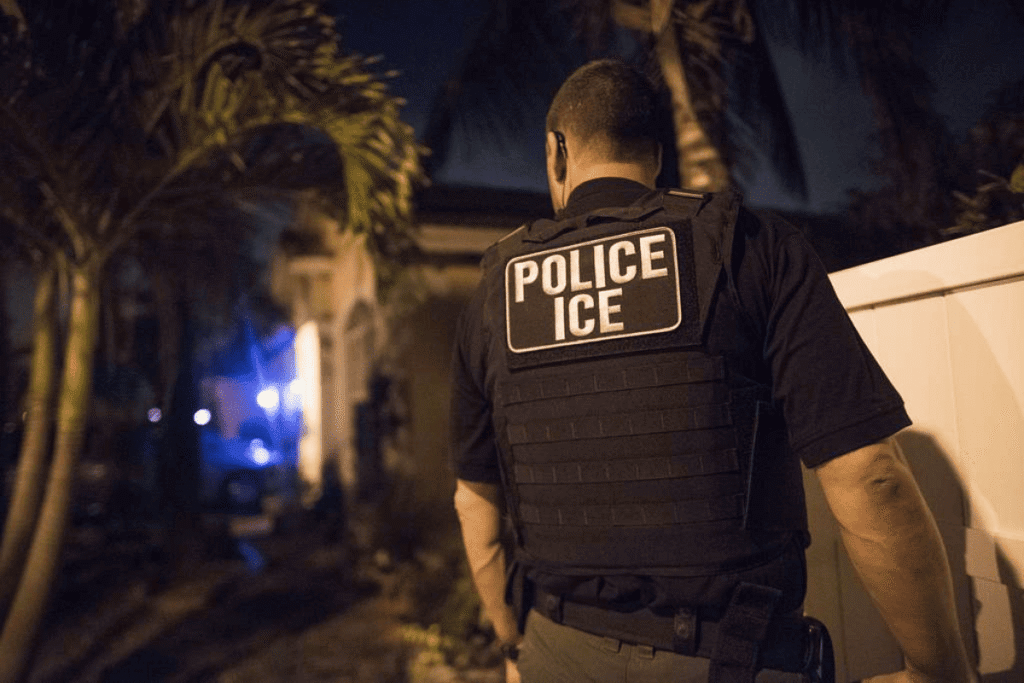The deportation of U.S. citizen children alongside their undocumented parents has sparked intense debate and legal scrutiny in recent years. One high-profile case involved a 2-year-old U.S. citizen who was deported to Honduras with her mother and 11-year-old sister, raising serious questions about due process, constitutional rights, and family separation policies. This article explores the circumstances surrounding such deportations, the legal challenges they present, and the broader implications for immigrant families in the United States.
Understanding the Case: Deportation of a US Citizen Child to Honduras
In a troubling incident, a 2-year-old girl born in Baton Rouge, Louisiana-making her a U.S. citizen by birth-was deported to Honduras alongside her undocumented mother and older sister. The family was taken into custody by U.S. Immigration and Customs Enforcement (ICE) during a routine check-in. According to government officials, the mother requested that her child accompany her upon deportation.
However, this claim has been met with skepticism by federal judges and immigrant advocates. Federal Judge Terry Doughty expressed concern that the child was deported without meaningful due process, which would violate the child’s constitutional rights. The judge ordered a hearing to examine whether the government followed proper legal procedures, emphasizing that the deportation of a U.S. citizen without due process is illegal.
Legal Challenges and Constitutional Rights

The deportation of U.S. citizen children raises complex legal questions. Under the 14th Amendment, anyone born in the United States is a citizen and entitled to all constitutional protections, including due process and the right to remain in the country. Deporting a citizen minor without a fair hearing or legal representation challenges these fundamental rights.
Legal experts argue that ICE’s actions may have bypassed critical safeguards designed to protect citizen children. Immigrant rights organizations have filed lawsuits demanding transparency and accountability, asserting that the deportations were conducted without adequate legal counsel or parental consent.
The case also highlights the broader issue of family separation policies that have been criticized for causing trauma and violating human rights. Deporting children alongside their parents, especially when the children are U.S. citizens, complicates the legal landscape and raises ethical concerns.
Impact on Families and Communities
The deportation of U.S. citizen children to countries like Honduras disrupts families and communities, often leaving children in unfamiliar environments without adequate support systems. Families face emotional distress, financial hardship, and uncertainty about reunification.
For the children involved, the experience can be particularly traumatic. Being removed from their country of birth, separated from extended family, and placed in a foreign country with limited resources can have long-lasting psychological effects.
Communities in the U.S. also feel the impact, as these cases highlight gaps in immigration enforcement policies and the need for reforms that prioritize family unity and protect citizen rights.
Government Response and Policy Considerations
Government officials, including members of Congress, have defended ICE’s actions by stating that the children were not forcibly removed but accompanied their mothers voluntarily. They also emphasize that U.S. citizen children can return to the United States if a guardian chooses to bring them back.
However, critics argue that the voluntary nature of these deportations is questionable, given the power dynamics and limited options available to undocumented parents facing removal. Advocacy groups call for clearer policies that prevent the deportation of citizen children and ensure due process protections.
The Biden administration and other policymakers are under pressure to review and revise immigration enforcement practices to prevent similar incidents in the future. Proposals include increased oversight, better legal representation for families, and alternatives to detention that keep families together.
What Can Families and Advocates Do?
For families facing the threat of deportation, understanding their rights is crucial. U.S. citizen children cannot legally be deported, and parents should seek legal counsel immediately if facing removal proceedings.
Advocates recommend:
- Seeking legal assistance: Immigration attorneys can help families navigate complex legal processes and protect children’s rights.
- Documenting family relationships: Birth certificates and other documents prove citizenship and familial ties.
- Engaging with community organizations: Many nonprofits offer support, resources, and advocacy for immigrant families.
- Raising awareness: Public pressure and media coverage can influence policy changes and government accountability.
Conclusion
The deportation of U.S. citizen children to countries like Honduras alongside their undocumented parents remains a deeply contentious issue, highlighting the urgent need for clear legal protections and humane immigration policies. Ensuring that citizen children receive their constitutional rights and that families are not unjustly separated must be a priority for lawmakers, courts, and immigration authorities alike.more
By staying informed, seeking legal support, and advocating for reform, families and communities can work toward a more just and compassionate immigration system that respects the rights and dignity of all individuals.
Also Read – https://scoopusa24.com/delicious-healthy-home-dinners-for-family-weight-loss-in-2025/

Pingback: 67 Dead in DC Mid-Air Collision: Pilot Error, Altitude Violations & Night Vision Risks